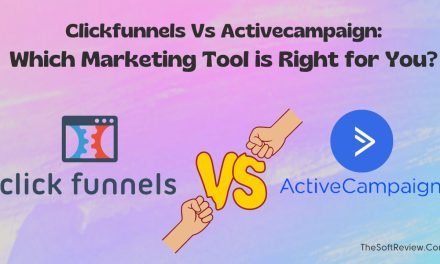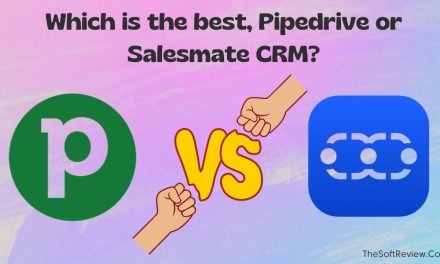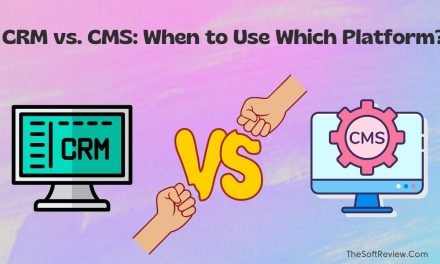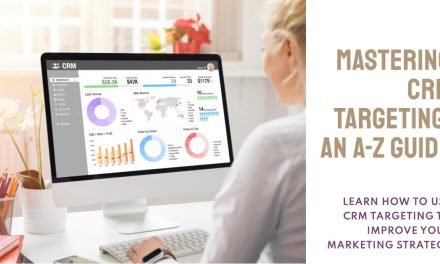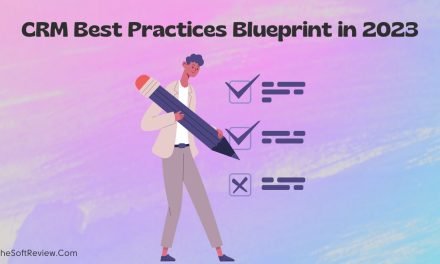
What Is CRM Software? Features, Benefits, and Buying Guides
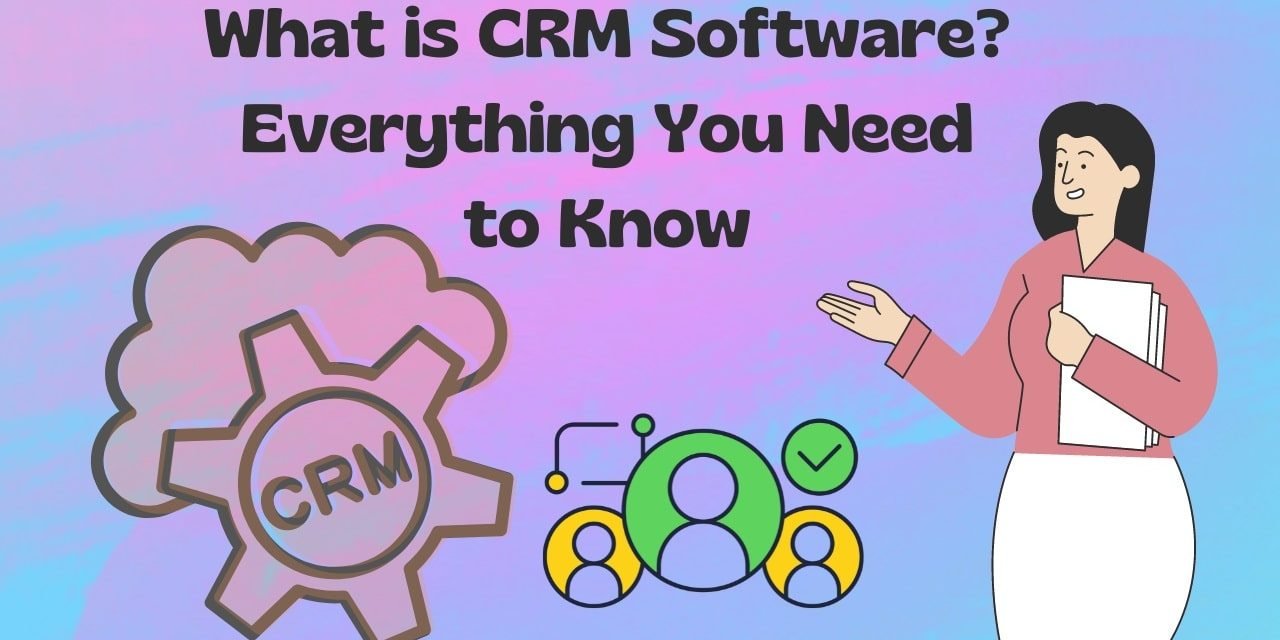
We simultaneously use the two teams’ CRM (customer relationship management) and CRM software. But they differ at their core.
When CRM is an approach, CRM software is the most advanced method of adopting it.
To clarify, here we will explain what CRM software is and how it works so that you learn the key aspects and measure its worth!
Key Analysis: What is CRM software?
CRM software is a computer application that revolutionizes customer management, optimizing data collection, engagement, and sales processes. It empowers businesses to enhance communication, automate tasks, and gain insights, fostering stronger customer relationships and informed decisions.
What is Customer Relationship Management Software and How Does it Work? The Key Features and Benefits
The traditional ways of managing customer relationships help (notebooks and spreadsheets). Yet, they become overwhelming as the data size increases.
For example, a few edits will make the data hard to understand if you use a paper-based CRM (pen and notebook). And this system only works for remote teams.
Managing large files and taking additional notes can also seem complicated with a spreadsheet CRM.
The solution to all these issues is the key features of CRM software. Now let’s focus on the key elements of CRM software and learn how CRM software works:
1. Enhanced Customer Data Management and Lead Qualification

Collecting and managing customers’ information becomes smooth with CRM software. You can connect it with your company’s website, mobile app, social media, or any other platform.
When a customer interacts with your business channels, the software will collect users’ data and create a customer profile.
The details can be collected using cookies or based on customer interactions when they take part in surveys and leave reviews.
You can later access the information and edit each customer profile. For instance, you can add details of past purchases or interactions history, preferences, interests, and more.
Besides, you can import client data from spreadsheets, email marketing tools, or other CRM software.
Also, in a good CRM software, you will get a customizable dashboard to track customer interactions more sophisticatedly.
These data management features help to find quality leads and increase sales.
2. Enhanced Communication and Engagement
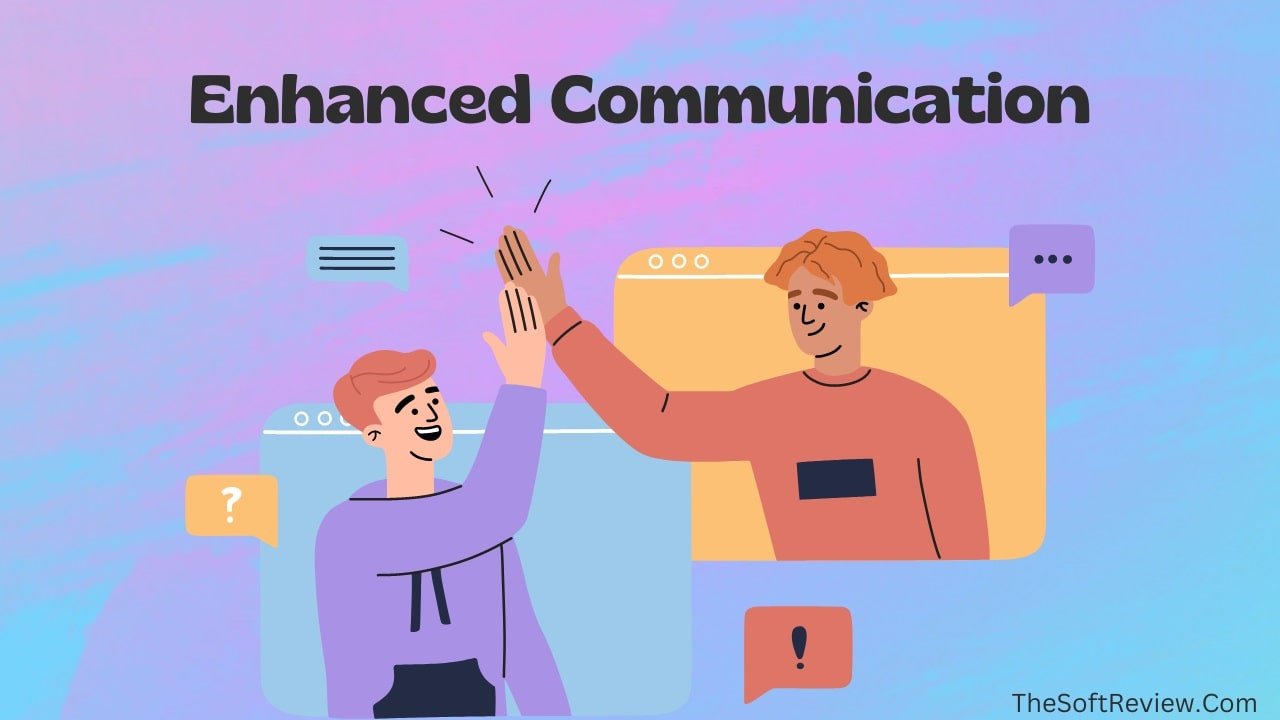
Another crucial feature of the CRM app is that it allows businesses to engage with customers more conveniently.
With the CRM app, you can create separate sales pipelines for each customer based on their buying journey and engage with them as they like.
For example, you can engage with your customers via emails, SMS, phone calls, and even text on social media from your CRM software.
Also, you can communicate with team members while storing and sharing documents. These communication features help a business increase customer retention rates.
3. Workflow Automation:
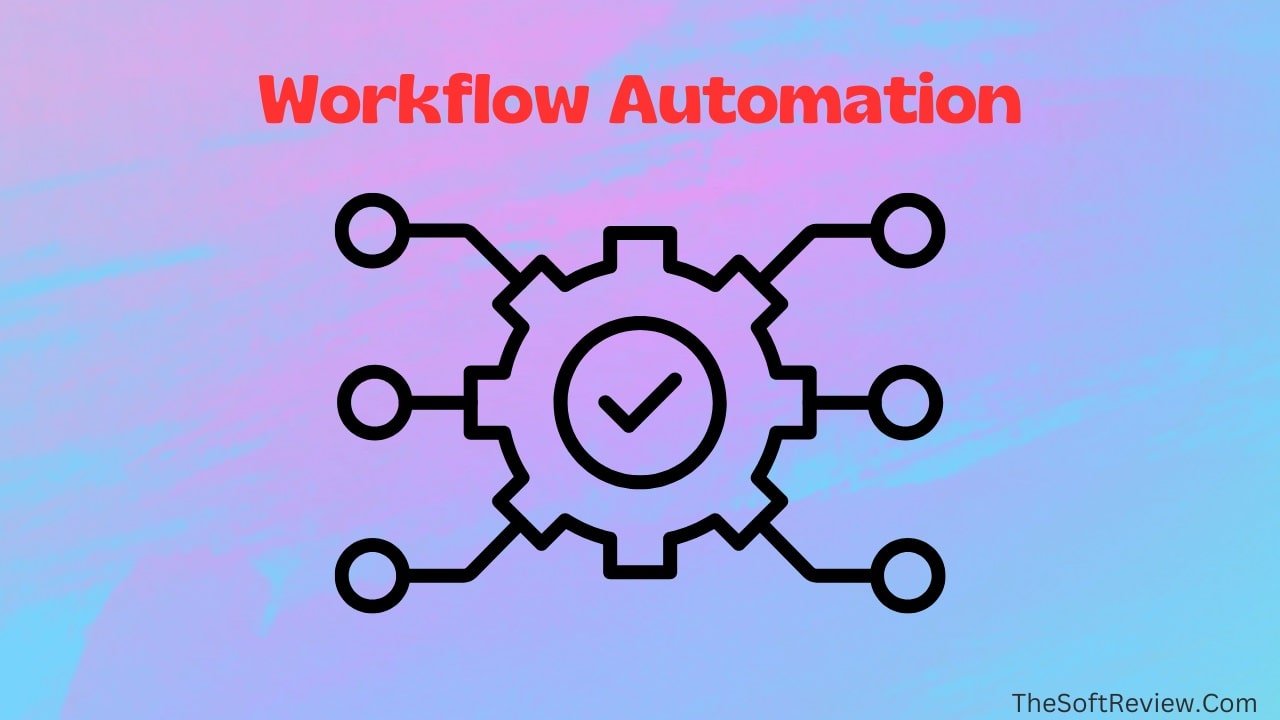
Workflow automation is the most innovative feature of CRM software. You can automate your marketing and sales tasks, help desk activities, and more. So lead generation, pipeline management, and live chat support become simple.
For instance, a sales rep can use sales and marketing automation features to send automated emails to prospects, track progress, and set reminders for follow-up tasks.
This automation feature helps businesses to reduce human errors and focus on something more critical to the business. And according to research by Zippia, “82% of companies use CRM applications for sales process automation.”
And with third-party integrations, you can automate call routing and automatic voice messaging.
4. Analytics and Reporting with Sales Forecasting:
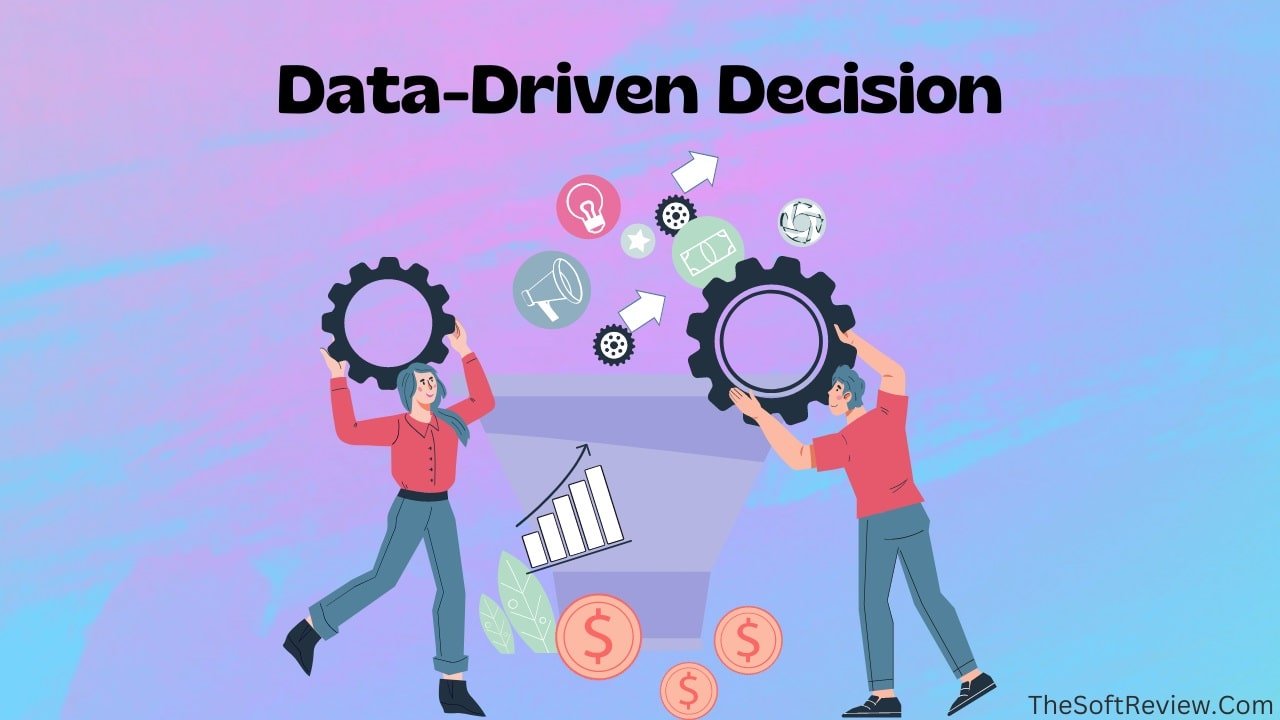
Every CRM software provides an analytical dashboard with advanced reporting tools. You can use these tools to apply your analytical skills and measure the client’s data to predict sales trends and insights on revenue.
For example, you can set your sales goals, track each employee’s performance, and forecast your achievement.
Similarly, you can visualize and measure your deals’ winning and losing ratio to find out the reasons for losing sales deals and take action to improve.
These analytical features help a business keep a deep look at its data and act upon it more innovatively than traditional CRM solutions.
5. A Wide Variety of Integrations:
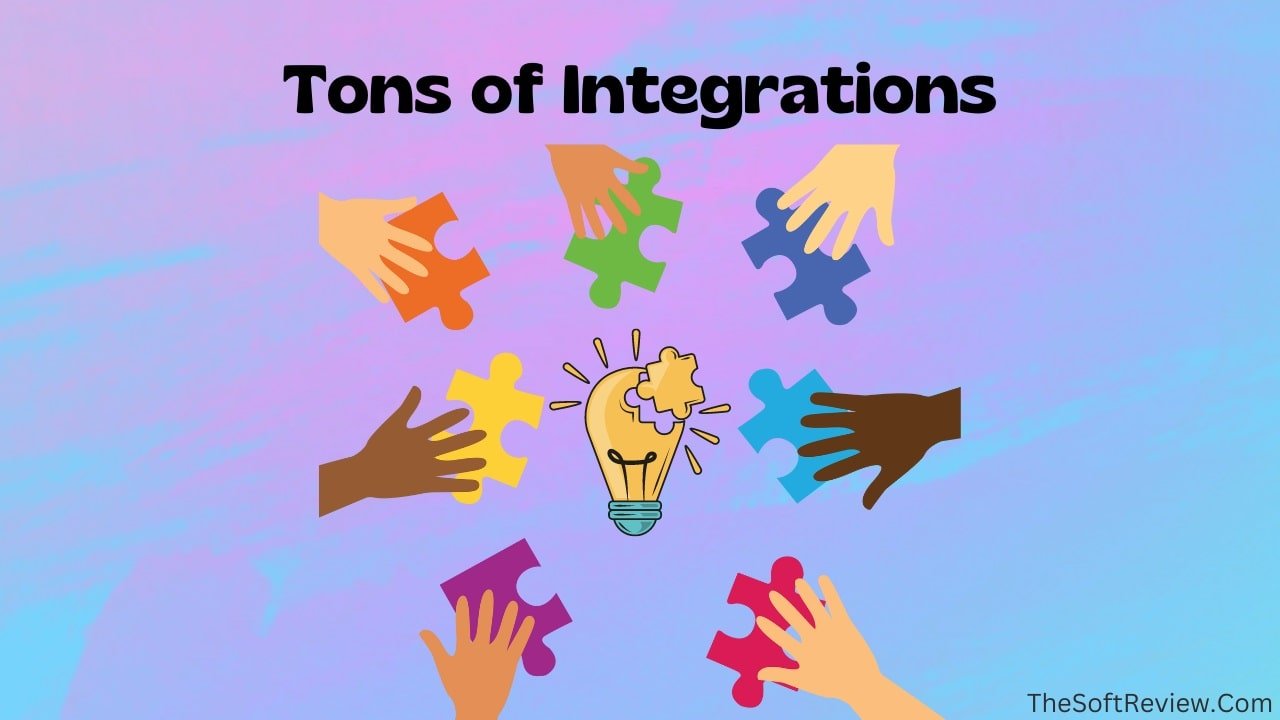
With CRM software, you have a dedicated library where you get thousands of software integrations to integrate with your CRM and add new features.
Popular integrations include:
- Email marketing software.
- Help desk software.
- Advanced marketing automation tools.
- Data analytical tools.
- Project Management tools
- Supply chain management tools
And others that increase the functionality of the overall customer relationship management journey.
For example, with a Help Desk software integration, you can track your customer support requests and solve the issues by providing the data that the support team needs.
And within the CRM, you can analyze customer interactions and run new marketing campaigns to sell them again.
All these integrations increase customer satisfaction and help you build a meaningful relationship with prospective customers.
So, this is how a CRM solution works by helping you collect and manage customers’ information and engage with them with all its advanced features, including seamless data security.
On top of all that, you can customize your CRM system based on different business needs.
For instance, you can customize the fields tracked for each lead, create custom reports and dashboards, set up unique sales processes and workflows, and more.
Most of all, advanced CRM platforms offer a high level of customizability and can be customized for a specific purpose. Now let’s learn about different types of CRM applications:
Different Use Cases of CRM Software and Its Different Types
When it comes to different types of CRM applications, you can get CRM in two primary forms, like a desktop or a cloud-based CRM application.
Desktop CRM app runs on a company’s servers, giving them complete control and ownership of their data. It can be customized to their needs but requires a more significant investment in hardware, software licenses, and IT staff. Big tech companies and IT professionals use their own desktop CRM apps.
On the other hand, cloud-based CRM software is a SAAS product hosted by a vendor’s servers, so no installation is needed. It’s cheaper and more flexible because the vendor controls updates and maintenance. However, businesses using the cloud will have less control over their data as it could be subject to service outages if the vendor has tech issues.
Most small and medium businesses now use a cloud-based CRM for their business needs. And we can categorize a CRM application into three types based on the use case:
1. Operational CRM Software
Operational CRM software is designed to be a part of business operations and follow the exact business strategy. Businesses use this CRM solution to automate repetitive tasks in marketing, sales, and customer service.
For instance, with an operational CRM, sales reps can filter their leads to reach out to the prospect using different channels. And a support team automatically routes a help ticket to the agent that fits the best.
This type of CRM system would be splendid for marketing and sales teams that want to automate their customer relationship cycle.
Your content goes here. Edit or remove this text inline or in the module Content settings. You can also style every aspect of this content in the module Design settings and even apply custom CSS to this text in the module Advanced settings.
2. Analytical CRM Software
This type of CRM software solely focuses on analyzing the customer data you have gathered. The main goal is to use data analytical skills, gain insights, and make better business decisions.
Analytical CRM features various segmentation and predictive modeling tools that help you determine which marketing campaign brings more leads. You get to know how satisfied your customers are, what the company’s best-selling product is, where you need to improve, and more.
You can customize any advanced CRM and make it an analytical-focused CRM. It would be best for you to be among the customer information analysts and strategy makers.
3. Collaborative CRM
Collaborative CRM software is focused on improving communication and collaboration in providing seamless customer service among different teams in an organization.
For instance, your company has three different marketing, sales, and support management teams! Using a collaborative CRM tool will let all your team members access the exact, updated customer details even if they work remotely.
This CRM systems type assists large enterprises in better coordinating and sharing information in real-time.
These are the three primary use cases of CRM software and categories. Now let’s talk about how you know your business needs dedicated CRM software:
When Do You Need CRM Software? 5 Definite Signs
Here are five definite indications that your organization needs dedicated CRM software:
1. You Find It Challenging To Collect, Store And Manage Customer Data:
Suppose your data size increases, and you need help keeping track of client interactions, communication, and employee data. In that case, a CRM solution can help you centralize and manage all the information in a single place.
2. You Are Losing On Identifying And Targeting Potential Leads:
If you need more clarification about what you are with your leads, using CRM software can help you organize your customer data with different segmentation. It would enable you to identify and target the most valuable customers first.
3. Your Marketing And Sales Operations Are Unorganized:
Suppose your marketing and sales teams are busy doing less important things. In that case, CRM software can help them automate the entire sales process and better coordinate their efforts while aligning with their strategies.
4. Your Customer Retention Rate Is Decreasing:
If your customers are not coming back, the reason could be you do not follow up with them appropriately. Adopting a CRM application would help you increase the chance of getting more repeat customers.
5. You Struggle With Getting Insights:
Suppose you are not getting powerful insights from your customers’ and employee data. In that case, it might cause you to need more data-analyzing tools. In that case, having a CRM application can help you ensure a better customer experience.
How to Choose a CRM Software for Your Business?
There are several vital aspects to consider when choosing CRM software for your small business:
1. Focus on Your Needs:
Before buying Customer relationship management software, you must be clear with your business needs. For instance, if you run a real estate business, you should better go with CRM software that is real estate focused.
2. Focus on Core CRM Features:
No matter which CRM you choose, make sure it is good at the core CRM features. Examine how a CRM performs at contact management, customer engagement facilities, sales and marketing automation, integration, and analytics features.
3. Customization:
As you may need to change your business’ CRM strategy, look for a CRM that is easy to customize. On the other hand, each team member may like to use the software in different ways. So, consider if the CRM offers customization options to fit your business processes.
4. Data security:
Data is everything for a business. You must ensure the CRM has strong data encryption capabilities to protect your customer and business information. Look for a CRM that offers multi-layer data security and access-controlling features.
5. Integration:
Choose a CRM that supports various integrations you use daily, such as social media, marketing automation, and customer support. At the same time, you have to ensure that all the integrations work smoothly with your CRM tool.
6. Customer Support:
It is natural to face specific issues while using CRM software. So, choose a CRM with reliable customer support to assist you with any questions or problems
7. Scalability:
Consider a CRM that brings new features and enhances the system’s stability so that you get all the new functionality as your business grows.
8. Mobile Version:
Try to find a CRM that offers a stable mobile app, as you may need to use it to track your sales cycle while you are out of your home. A CRM app on your phone can help you meet your sales goals. According to another study by Zippia, 65% of sales professionals who use the mobile version of a CRM manage to reach their sales goals, compared to 22% of those who don’t.
9. Ease of use:
Focus on finding a CRM platform that’s simple enough to operate, requires too much RAM and storage, and is hard to learn for your team. A good CRM system should always be easy to learn and use.
10. Cost:
Cost is the last but most crucial aspect you should keep your eyes on; you have to set your monthly or yearly CRM budget and look for a CRM system that fits within it. Make sure you keep a balance between cost and quality.
But how do you check the above aspects before you choose a CRM application?
Almost all CRM tools offer free trials that you can use for a limited time and determine whether the software you selected matches your needs.
Keep these things in mind while you buy CRM software, and checking out the 11 best CRM software we selected for small businesses can save your research time.
On the other hand, you can read this Pipedrive vs Salesmate comparison to check out how capable these industry-leading CRM software are of fulfilling your business needs.
Final Words
Customer relationship management software is a combination of different tools that helps businesses enhance their customer engagement throughout the entire customer lifecycle. Using its various manual and automation features, you can become more efficient in collecting, storing, and tracking clients’ data and increasing sales.
And indeed, CRM applications perform much better than paper-based or spreadsheet CRM. However, the benefits of a CRM tool will only be achievable when you choose the right CRM for your business process.
Frequently Asked Questions
1. Who Uses CRM Software? Is CRM Software Worth It?
Businesses and sales teams that want to make the most out of their customer information use CRM software. Yes! Adopting CRM software is worthwhile, as it helps you record and track all your customer information in a single place. Its various features, like contact management, workflow automation, and analytics, help increase sales.
2. How Much Does CRM Software Cost?
The CRM tools cost approximately $10 to $15 per user per month. Yet, the cost can go up or down based on which type of CRM software you are willing to use and any advanced features you need. For example, if you want to use a CRM application with a built-in email marketing tool or phone calling system, the cost would go above $20. like Pipedrive’s Professional plan.
3. Is CRM Software Hard To Learn?
No! Learning CRM applications is easy when you have the basic knowledge of navigating a computer system and are willing to learn. Most CRM software offers a comprehensive guide on their website, or you can search Google for resources to know about that software. For example, you can read these two blog posts to learn the basics of Pipedrive and Salesmate CRM.
